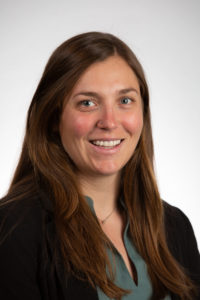The path to this year’s United Nations Climate Change Conference has been a little rocky. But despite the last-minute change in venue – from Santiago, Chile, to Madrid, Spain – a dozen graduate students from Colorado State University will attend and take part in the climate talks, also known as the Conference of the Parties or COP. The conference runs Dec. 2-13.
They’ve been schooled on the ins and outs of the international gathering through a class taught by CSU Associate Professor Gillian Bowser in conjunction with Clark University Associate Professor Elisabeth Gilmore and Professor Sarah Green of Michigan Technological University. This will be the 10th trip to the COP for Bowser.
The class is not a primer on international travel. Bowser, Gilmore and Green charged the students with conducting research on the U.N. Sustainable Development Goals, which serve as a call to action for countries around the world. Each team of students includes individuals from CSU, Clark and MTU. They’ll present their findings at press conferences held at the COP.
“The UN Environment Program has been stressing the importance of getting the Sustainable Development Goals into the classrooms,” Bowser explained. “For our students, this global framework is important for them to understand as they explore issues in sustainability. We use the SDG platform to help bring our students in alignment with the global conversation of sustainability, which revolves around not only the Paris Agreement but also around the many small and local targets that are represented within the goals.”
The Paris Agreement’s central aim is to strengthen the global response to the threat of climate change by keeping a global temperature rise this century below 2 degrees Celsius.
Sustainable consumption, gender equity research
Stefanie Berganini, an instructor in the CSU Department of Anthropology and Geography, is focusing on Sustainable Development Goal 12: Ensure sustainable consumption and production patterns. The goal encompasses what’s known as a circular economy, focused on recycling or reusing something, rather than having it end up in the trash.
Her research team is conducting surveys on their respective campuses to explore the level of support for a circular economy. So far, they’ve found a lot of support, based on nearly 300 completed surveys.
“Everyone across the board thinks that sustainable waste management and recycling are extremely important and want to see it on college campuses,” said Berganini, who is also a doctoral student in the Department of Ecosystem Science and Sustainability.
The team has discovered that of all the different types of recycling, people are most knowledgeable about paper and food waste. But the category of electronic, or e-waste, seems less important for many people.

Claire Carver, who is pursuing a master’s degree in Greenhouse Gas Management and Accounting, is studying gender equality, which is Sustainable Development Goal 5. She and her teammates are looking at campus initiatives, which at CSU includes the Graduate Student Parental Leave policy and the recent addition of All Gender Restrooms.
Carver said one theme that has emerged from interviews is that gender equality is not limited to making the workplace better for women.
“Gender equality is an all-encompassing, inclusivity movement,” she explained. “For example, with the parental leave policy, it’s not a maternal leave policy. It’s making lives better for everyone on campus.”
Taking part in the class has felt similar to a capstone course, since Carver is graduating in December. “It’s a way to celebrate the last year and a half of graduate school, to go to the biggest climate conference in the world,” she said.
Betsy Weir, environmental change and health program leader with the One Health Institute at CSU, will attend the climate talks with Bowser and the students. Several CSU faculty had planned to attend but were not able to adjust travel plans when the conference was moved to Spain.